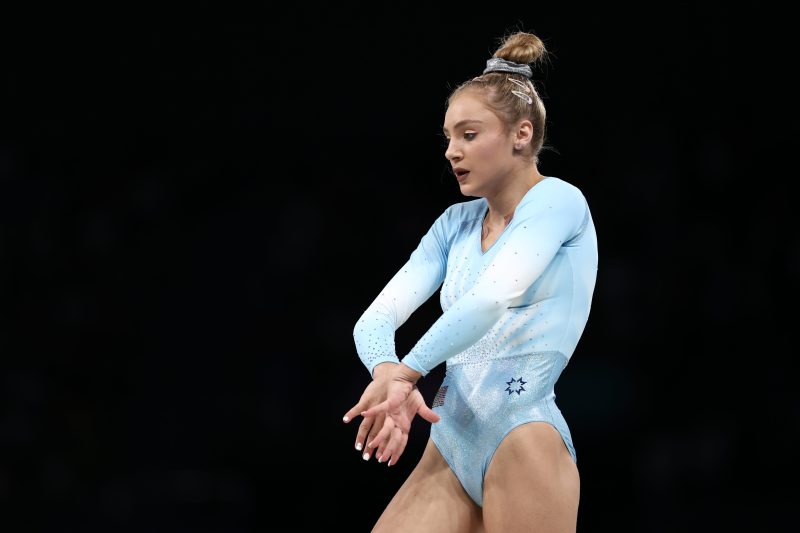Jordan Chiles isn’t the only gymnast still fighting for a bronze medal from the floor exercise final at the 2024 Paris Olympics.
Sabrina Maneca-Voinea and the Romanian Gymnastics Federation filed an appeal with the Swiss Federal Tribunal, the federation announced Monday. They are challenging the Court of Arbitration for Sport’s rejection earlier this month of Voinea’s complaint that she was wrongly docked 0.10 points for going out of bounds during the floor final.
Voinea’s appeal is the latest twist in a convoluted case that has caused an international furor given Chiles was stripped of her bronze medal on the final day of the Paris Olympics despite having done nothing wrong. USA Gymnastics and the U.S. Olympic and Paralympic Committee have said they are also planning an appeal to the Swiss Federal Tribunal, citing procedural errors by the CAS and video evidence that refutes the premise for CAS’ ruling.
Chiles initially finished fifth in the Aug. 5 floor final, her 13.666 putting her behind Ana Barbosu and Voinea. The Romanians each scored 13.7, but Barbosu placed higher because of a better execution score. Cecile Landi, who is Chiles’ personal coach in addition to being the U.S. coach in Paris, appealed Chiles’ difficulty score, arguing she had not been given full credit for a tour jete, a leap.
A review panel agreed, and the additional 0.100 elevated the American ahead of both Romanians into third place. Romania appealed to CAS on Aug. 6, challenging the timing of Chiles’ appeal. CAS ruled Aug. 10 that Chiles’ appeal was submitted four seconds too late and told the International Gymnastics Federation to re-order the standings.
2024 Paris Olympics: Follow USA TODAY’s coverage of the biggest names and stories of the Games.
The following day, the IOC ordered Chiles’ medal to be reallocated, making Barbosu the bronze medalist. Though USA Gymnastics said it has video showing, conclusively, that Landi submitted the appeal in time, the IOC considered the matter settled and Barbosu received her medal Aug. 9.
But according to Voinea and the Romanians, all of this would have been a moot point had Voinea not received a deduction for going out of bounds, which replays show she did not do. Without the 0.10 out-of-bounds deduction, Voinea’s score would have been a 13.8, putting her ahead of Chiles – both her initial score and the one after the appeal – and Barbosu.
Voinea and Romania appealed her score to CAS, but the tribunal rejected it, saying it was a ‘field-of-play’ decision. Though Voinea had filed an inquiry during the competition, it was for her difficulty score, not the out-of-bounds call. Asking CAS to reverse it after the fact would be to second-guess the judges, the tribunal wrote in its reasoned decision, issued Aug. 14.
‘The decision as to whether a 0.1 deduction was appropriate is a textbook example of a ‘field of play’ decision, one that does not permit the arbitrators to substitute their views for that of the referee,’ CAS wrote. ‘It warrants the non-interference of CAS as it entails the exercise of judgment by the referee, based on expertise in the ‘field of play’.
‘Whether the judgment is right or wrong, it cannot be reviewed.’
The USA TODAY app gets you to the heart of the news — fast. Download for award-winning coverage, crosswords, audio storytelling, the eNewspaper and more.
